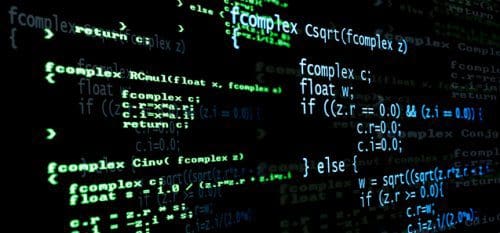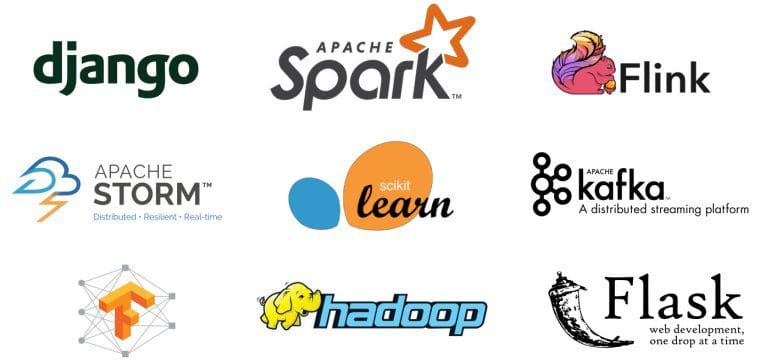What Do Frameworks Offer Data Scientists that Programming Languages Lack?
While programming languages will never be completely obsolete, a growing number of programmers (and data scientists) prefer working with frameworks and view them as the more modern and cutting-edge option for a number of reasons.
It used to be that computer programming was all about using the right language. Between systems like C, Lisp, and Pascal, programmers had their choice of speciality and format. However, the differences between programming languages have largely been fixed with increased computing power that allows systems to understand and easily move between all languages. Today, the focus is on frameworks, which tend to be more modern and forward-thinking and which can overcome many of the outdated practices of programming languages.

What language you code in is less important today than in days past.
Frameworks are cohesive sets of library code that simplify programming in any given language, whereas language is the actual syntax and grammar of writing a code. Frameworks come with a number of advantages. While programming languages will never be completely obsolete, a growing number of programmers prefer working with frameworks and view them as the more modern and cutting-edge option for a number of reasons. The move towards frameworks is part of the IT Transformation that will surely gather steam over the coming years.
Frameworks Go Deeper
Programming used to be all about getting the most you could out of code, but that practice has largely been done away with by automated code-writing systems. Today, instead of focusing on how to write an API, programmers care more about what that API can do. It’s like the difference between trying to get the correct spelling of a word versus actually understanding what the word means and how to use it in a sentence. Since most coding is stringing together sets of APIs, programmers can focus more on the framework of the system instead of fretting over what punctuation mark to put in the middle of the code. Focusing on what the API is capable of allows programmers to push the envelope and find the cause and effects for various coding problems; it gives them more freedom to understand what is happening and how it can be manipulated to create the most effective code possible.
Frameworks Focus on Big Picture
Thanks to automated systems and tutorials, having a deep knowledge of various programming languages simply isn’t as important as it once was. Mistakes can be automatically corrected through various programs that are constantly looking for coding errors. Instead of spending time going over the minute details of a code, frameworks allow programmers to think in the bigger picture. With a better understanding of what the systems and APIs are capable of and automated systems to take care of the more tedious details, programmers can put more effort into turning their programs into something bigger with more high-level features and potential.
Frameworks Build Strong Algorithms
One of the most important parts of using a programming language is understanding the algorithms and making sure the code fits into those algorithms. However, algorithms can be limited by language because they are actually defined by the frameworks. Changing and establishing algorithms as part of the framework is much safer and more effective than trying to tinker with them as part of the language. Frameworks have been in development for years, meaning they are tried, tested, and true -- a combination of thought and experimentation from the best programming minds.
Frameworks are the Future
No matter what language they focus on, many programmers agree that frameworks are the future of coding. If code is law, programming language is the enforcer that makes sure the law is put into action, but frameworks are the systems that actually create the laws. By focusing on frameworks, programmers can have a bigger say in the future and can actually set the rules for the codes instead of simply implementing them. Once the rules are set, everyone must work inside of them, so understanding framework gives users a chance to set the rules that everyone else must follow. In a fast-moving and forward-thinking programming world, being able to set some of the rules provides power and opportunity to change the game.

A small sampling of frameworks which can be utilized in data science.
Benefits to Data Scientists
This brings us to how frameworks can greatly benefit data scientists in their work. All of the above points can prove advantageous to data scientists. For one, a focus on frameworks means data scientists don’t always need to have extensive experience in coding and programming languages. They can instead bring their experience in their respective industries to the table. Frameworks also help data scientists in the process of data mining and data analysis, while also provided them with the time to focus on the bigger picture.
Some frameworks have even been developed with big data and data science in mind. Hadoop, for example, was one of the first big data processing frameworks to be adopted by a wide variety of businesses. Hadoop also led to to the growth of an entire ecosystem of technologies like Hive and Pig dedicated to big data processing. Other frameworks like Spark, Samza, and Flink all have their place and have helped data scientists better achieve positive results, derive insights from large data sets, and efficiently manage big data projects.
Although programming languages were once incredibly important, focusing on their nuanced differentiating factors is largely becoming outdated and unnecessary, especially when automated programs are available. Instead, focusing on frameworks and why things work they way they do will lead the way to the computing future, helping data scientists reach new levels of success.
Related:
